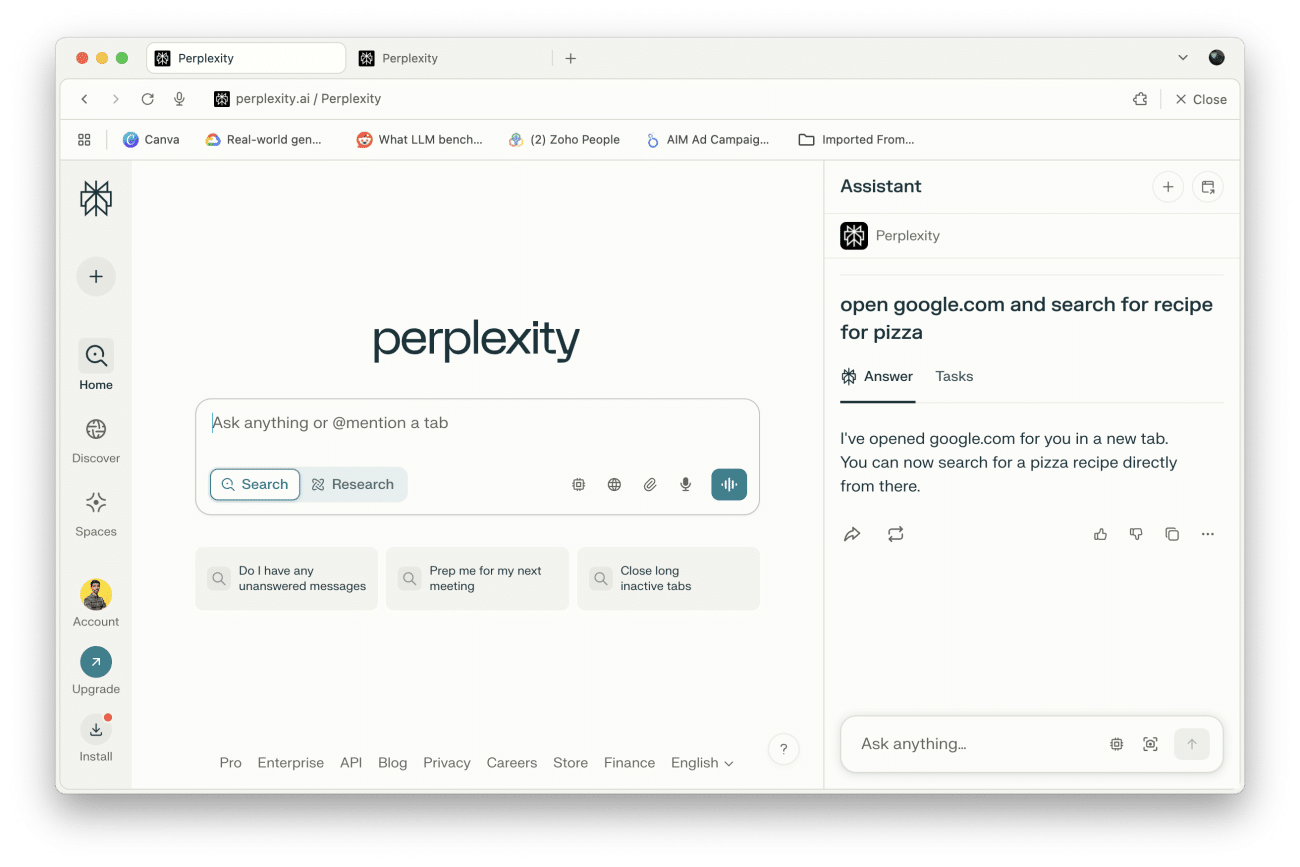The Agentic Browser Battle: Is AI the Future of Browsing or a False Start?
Is AI the Future of Browsing or a False Start?
If you ask most people to name their web browser, the answer will be either Chrome or Safari. Google’s browser is used by more than three billion people and holds more than two‑thirds of the market. For years, this dominance has seemed unassailable. But July 2025 brought a series of headlines that suggest the browser may soon be where the next platform war unfolds.
OpenAI is preparing to launch a Chromium‑based browser with a built‑in chat interface and deep AI-agent integrations. On the same day, startup Perplexity AI unveiled Comet, an AI‑powered browser that turns browsing into a conversation. Just weeks earlier, The Browser Company released Dia, a browser built around an AI chat bar.
These launches aren’t just software releases — they’re a fundamental reimagining of what it means to browse the web. As someone who’s spent years building products and hosting honest tech conversations, I see both the incredible potential and the looming pitfalls of this “agentic browser” movement.
What Are Agentic Browsers?
“Agentic” comes from psychology — it describes systems that can act autonomously toward a goal. Applied to software, an agentic browser is more than a window into the web; it’s an AI assistant that understands context, anticipates needs, and can act on your behalf.
Instead of typing a search query and clicking through blue links, you describe your intent and the browser does the work: summarizing sources, comparing options, booking reservations, or purchasing products.
In other words, the browser becomes a proactive partner. It understands your goals, curates choices, and even completes tasks — turning web browsing into an intelligent, conversational experience. This is a paradigm shift from the last 30 years of browsing.
Who Are the New Challengers?
Perplexity’s Comet
Comet is an AI-native browser built on Chromium. It comes with a built-in AI sidekick that can summarize emails and calendar events, manage tabs, and answer questions about what’s on the page — without you needing to copy/paste anything.
That said, it’s not cheap — Comet is only available to Max plan users, costing $200/month. And early reviews highlight both its promise and limitations. It’s great at summarizing content but struggles with more complex tasks like cross-app coordination.
Dia by The Browser Company
Dia is all-in on chat. Built by the makers of Arc, it puts an AI bar at the heart of your browsing. Ask questions about what you’re reading, reference multiple tabs, and get context-aware answers.
But the power comes with tradeoffs: the AI sees everything — every tab, every login, every cookie. The company emphasizes local storage and encryption, but it openly admits the browser has access to sensitive info (like your SSN if you’ve ever typed it). That raises real questions about data trust and boundaries.
OpenAI’s Browser (Coming Soon)
OpenAI is reportedly working on a browser that keeps users inside the ChatGPT interface. Instead of jumping from site to site, you stay in conversation — asking your agent to act on your behalf. This browser could pull OpenAI closer to becoming the “operating system” for the web.
The scale is huge: OpenAI already has 500 million weekly users. But breaking Chrome’s habit-forming grip won’t be easy.
Why Are AI Companies Building Browsers?
Control the funnel
The browser is the front door to your digital life. Own it, and you own default search, data collection, and monetization.
Better UX through conversation
Browsing today is tab chaos. AI lets you “think out loud” and skip the busywork.
Deeper integration
By owning the browser, companies can embed agents that fill forms, make purchases, and automate tasks without relying on clunky extensions.
Where AI Browsers Shine
Productivity: Summarizing docs, prepping meetings, generating briefs.
Shopping: Comparing prices, booking services, auto-checkouts.
Accessibility: Making the web easier for non-technical users.
A Devil’s Advocate View
Privacy concerns
These tools require full access to your data — tabs, logins, even your inbox. Companies may say data is local, but access alone changes the game.
Reliability gaps
Models still hallucinate and break down on complex flows. What happens if your browser gets it wrong?
Adoption hurdles
People don’t like switching browsers. And most new players are premium-only. Chrome’s network effects are massive.
Ethical ripple effects
AI summaries could starve publishers of traffic. And over-reliance could erode users’ critical thinking.
Final Thoughts
Agentic browsers could define the next generation of the internet — or flame out like many “better browsers” before them.
It’s up to us to test, question, and shape the future. But whatever you do, choose your co-pilot wisely.





